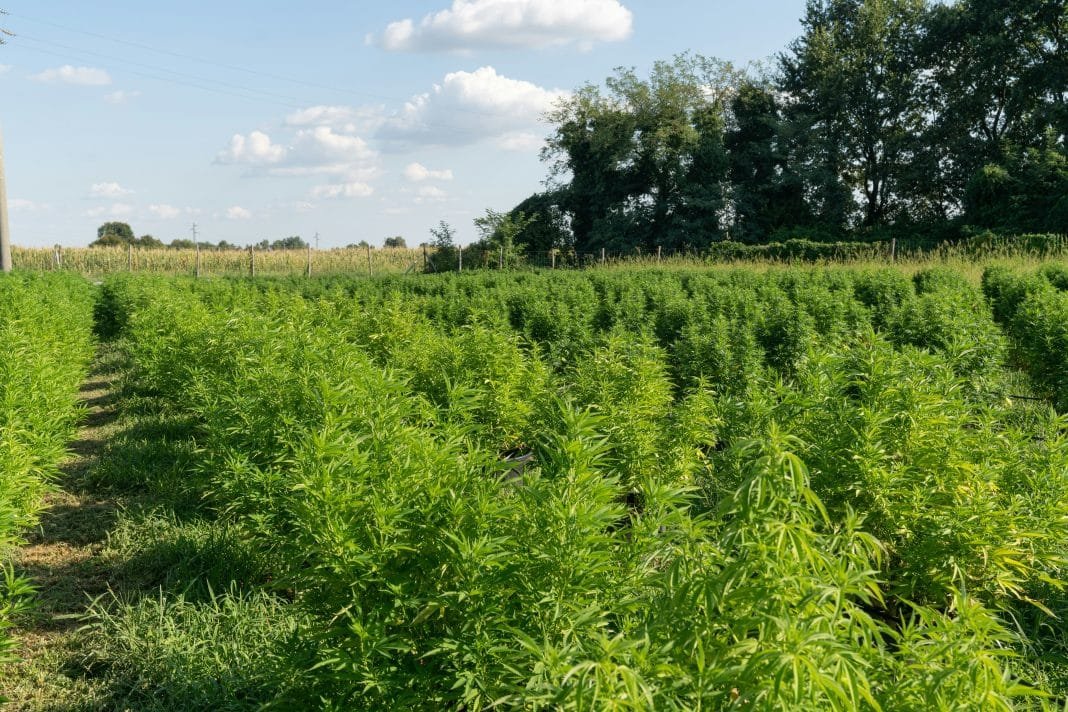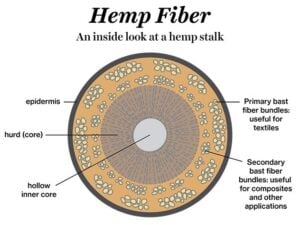All plants have the ability to sequester carbon and industrial hemp might be the carbon sequestration king, as it can suck up twice as much as a typical forest.
Industrial hemp also has a super fast-growing cycle versus forests which can take years to take root.
According to a Cambridge University researcher, a hectare of hemp can absorb between 8 – 15 tonnes of CO2. In comparison, forests capture 2 – 6 tonnes only depending on the type of trees, region, etc.
Hemp carbon credits could be on the horizon.
What is Hemp?
Industrial hemp grows extremely fast like a weed and was a cash crop for hundreds of years. Its versatility and hardiness make it useful for numerous biomaterials and resources.
Industrial hemp contains extremely low levels of the chemical compound (THC) which has psychoactive effects and the leaves contain a chemical called CBD (non-psychoactive) that’s touted to treat medical ailments.
The stalk can also be used to make bioplastics, paper, clothing, biofuels, and low-carbon construction materials.
How Hemp Can Reduce Carbon Emissions
The strong, stiff fibers that form the outside of the stem can be a source material to produce bioplastics. These even include automotive parts, wind-turbine blades, and cladding panels.
And the woody inner part of the stem is suitable for making ‘hempcrete’ building blocks. Using hempcrete instead of high-emitting concrete (1 lb of concrete = 1 lb of CO2) can further reduce overall CO2 emissions.
Not to mention using hemp for paper instead of wood also keeps trees in the forests where they can store more carbon.
But a lesser-known carbon sequestration potential of hemp is biochar.
Biochar from hemp stalks
Biochar is created through pyrolysis, which heats organic material in the absence of oxygen. This limits the release of carbon back into the atmosphere as microbes find it very tough to break down and using it in the soil can store carbon for a very long time.
Hemp stalk biochar is also environmentally friendly as it is made from plant waste and also helps return carbon to the ground to help other plants grow.
This can be a great option for farmers looking to turn stalks and other plant wastes into sustainable commodities. It can create another revenue stream for them through carbon credits.
Biochar carbon credits sell at a premium and some have recently sold for over $500 per ton of CO2 sequestered.
Verra also just released a methodology for biochar carbon credits.
Hemp and carbon credits
Carbon markets allow large companies to buy credits from places where carbon is stored like farms to offset their emissions.
There is no standard for hemp carbon sequestration, but companies like US-based Hemp Blockchain are looking to “track and trace” hemp through every stage of production, from seed to the final product.


